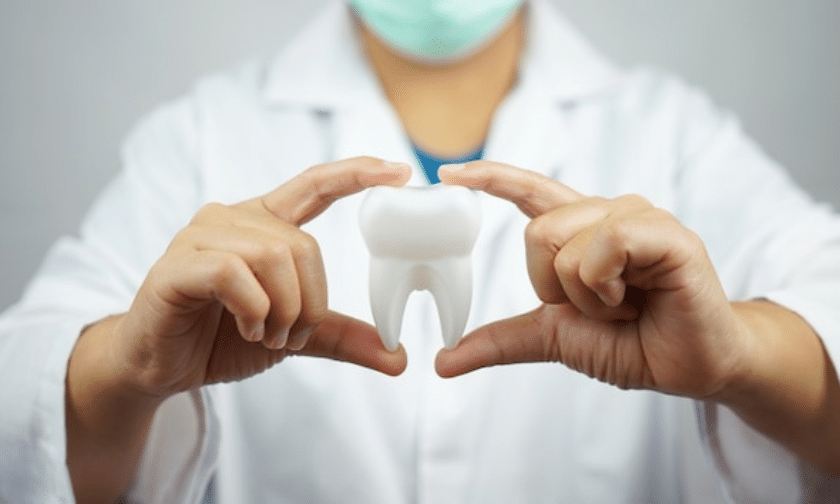Maintaining dental health is essential not just for a beautiful smile but also for overall well-being. Poor oral hygiene can lead to cavities, gum disease, bad breath, and even serious conditions like heart disease and diabetes. Understanding how to care for your teeth and gums daily can prevent complications and improve quality of life.
In this article, we will discuss why dental health is crucial, common dental problems, effective oral hygiene practices, lifestyle habits for strong teeth, and tips to maintain a confident smile.
Why Dental Health Matters

Good dental care benefits more than just your mouth:
-
Prevents tooth decay and cavities
-
Reduces risk of gum disease (gingivitis and periodontitis)
-
Improves breath and confidence
-
Enhances proper chewing and digestion
-
Supports overall health by lowering risks of systemic diseases
Caring for your teeth is a lifelong commitment that pays off in comfort, appearance, and general health.
Factors Affecting Dental Health
Several lifestyle and environmental factors can impact dental health:
-
Diet: High sugar and acidic foods increase the risk of cavities.
-
Oral Hygiene Habits: Poor brushing, flossing, or skipping dental visits leads to plaque buildup.
-
Smoking and Alcohol: Both can stain teeth, weaken gums, and increase oral cancer risk.
-
Genetics: Some individuals are more prone to cavities or gum disease.
-
Medical Conditions: Diabetes and hormonal changes affect oral health.
-
Stress: Grinding teeth (bruxism) can damage enamel and gums.
Recognizing these factors helps in creating effective preventive strategies.
Top Tips for Maintaining Dental Health
1. Brush Your Teeth Properly
Brushing is the foundation of dental care:
-
Brush at least twice a day using a soft-bristled toothbrush.
-
Use fluoride toothpaste to strengthen enamel and prevent decay.
-
Brush for 2–3 minutes, covering all surfaces of the teeth.
Pro Tip: Replace your toothbrush every 3 months or sooner if bristles are frayed.
2. Floss Daily
Flossing removes plaque and food particles between teeth where brushes cannot reach:
-
Use gentle up-and-down motions to avoid damaging gums.
-
Floss at least once a day, preferably before bedtime.
Pro Tip: Consider water flossers if traditional flossing is difficult.
3. Limit Sugary and Acidic Foods
Sugary snacks and acidic drinks contribute to enamel erosion:
-
Reduce candies, sodas, and fruit juices.
-
Rinse mouth with water after consuming acidic foods.
Pro Tip: Eat natural snacks like fruits, vegetables, and nuts to protect teeth.
4. Protect Teeth from Damage
Avoid habits that harm teeth:
-
Do not use teeth as tools to open packages.
-
Avoid chewing hard objects like ice or pens.
-
Wear a mouthguard during sports activities.
Pro Tip: Night guards can protect teeth from grinding during sleep.
5. Regular Dental Checkups
Professional dental visits are essential for early problem detection:
-
Schedule visits at least twice a year for cleaning and exams.
-
Dentists can identify cavities, gum disease, or oral cancer early.
-
Professional cleaning removes tartar that brushing cannot.
Pro Tip: Bring up any concerns like sensitivity, pain, or bleeding gums immediately.
6. Maintain Proper Hydration
Water supports saliva production, which neutralizes acids and washes away debris:
-
Drink 6–8 glasses of water daily.
-
Chewing sugar-free gum stimulates saliva production.
Pro Tip: Water with fluoride helps strengthen teeth naturally.
7. Avoid Smoking and Excess Alcohol
Both habits contribute to oral health problems:
-
Tobacco causes stains, gum disease, and oral cancer.
-
Excess alcohol dries out the mouth, increasing bacterial growth.
Pro Tip: Seek professional help to quit smoking or reduce alcohol intake.
8. Practice Good Tongue Hygiene
The tongue can harbor bacteria that cause bad breath:
-
Gently brush or scrape the tongue daily.
-
Rinse with an antiseptic mouthwash if necessary.
Pro Tip: Consistent tongue cleaning improves breath and overall oral hygiene.
9. Eat a Balanced Diet for Teeth
Certain nutrients strengthen teeth and gums:
-
Calcium: Milk, cheese, and leafy greens for enamel strength.
-
Vitamin D: Helps calcium absorption and supports jawbone health.
-
Phosphorus: Found in eggs, fish, and lean meat to maintain strong teeth.
-
Vitamin C: Citrus fruits and vegetables prevent gum disease.
Pro Tip: A nutrient-rich diet complements daily oral care routines.
10. Recognize Early Warning Signs
Awareness of dental problems helps in timely treatment:
-
Persistent toothache or sensitivity
-
Bleeding, swollen, or receding gums
-
Persistent bad breath
-
Cracked or chipped teeth
Pro Tip: Do not ignore warning signs; early intervention prevents severe problems.
Daily Routine for Optimal Dental Health
|
Time
|
Activity
|
Benefit
|
|---|---|---|
|
Morning
|
Brush + Floss + Tongue Clean
|
Removes plaque and bacteria
|
|
During Day
|
Drink water and healthy snacks
|
Supports saliva and enamel
|
|
Afternoon
|
Chew sugar-free gum if needed
|
Stimulates saliva
|
|
Evening
|
Brush + Floss + Rinse
|
Prevents night-time decay
|
|
Night
|
Hydrate and sleep adequately
|
Reduces dry mouth and bacterial growth
|
Consistency ensures strong teeth and healthy gums over time.
Frequently Asked Questions (FAQs)
1. How often should I brush and floss? Brush twice daily and floss at least once daily.
2. Can diet affect dental health? Yes, high sugar and acidic foods increase the risk of cavities and erosion.
3. Are regular dental visits necessary? Absolutely, professional cleaning and exams detect issues early.
4. How can I prevent gum disease? Maintain oral hygiene, eat a balanced diet, avoid smoking, and get regular dental check-ups.
5. What should I do if my gums bleed while brushing? Do not ignore it; consult a dentist as it may indicate early gum disease.
Conclusion
Maintaining dental health is vital for strong teeth, healthy gums, and a confident smile. By following proper brushing and flossing techniques, limiting sugary foods, staying hydrated, eating nutrient-rich meals, protecting teeth from damage, and visiting your dentist regularly, you can prevent cavities, gum disease, and other dental problems. Consistency, awareness, and proactive care are the keys to lifelong dental wellness.
“If you are looking for a natural way to improve your health and lifestyle, [Synadentix] could be the perfect choice. Start your journey today.”





